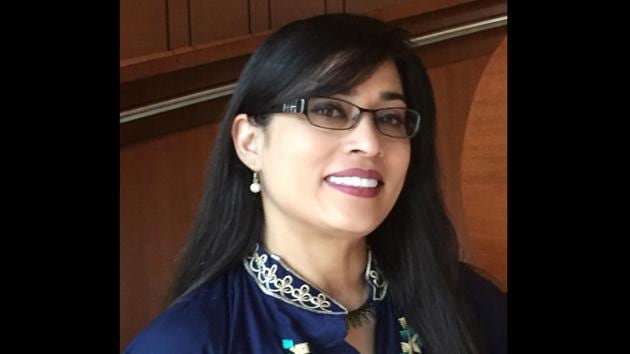With an eye on artificial intelligence, NRI looks to replicate Silicon Valley in Punjab
Chahal, who is coordinating the project from the US, says the Punjab government is keen to run a pilot project for the Whisper Network Protocol so it can be at the forefront of the latest blockchain technology that works on an AI platform.
It could be the next big leap for Punjab. Kamal Kaur, founder and CEO of the US-based DaVinci11, which claims to be the world’s first artificial intelligence (AI) big data marketing cloud company, has received the state government’s approval to test its Whisper Network Protocol, a blockchain technology developed by Kamal and her brother, serial tech entrepreneur Gurbaksh Chahal.

Chahal, who is coordinating the project from the US, says the Punjab government is keen to run a pilot project for the Whisper Network Protocol so it can be at the forefront of the latest blockchain technology that works on an AI platform.
Blockchain, explains Kamal, is a decentralised ledger where you can share your ledger openly. “There is zero probability of fraud. We tested it in digital marketing and received favourable results,” says Kamal, whose company with branches in 15 countries uses AI to anticipate what consumers want.
Make in India, stay in India
Chahal, 36, who launched his first startup at 16 and sold it for USD 40 million at 18, and has floated four mega ventures, one of which he sold to Yahoo for USD 300 million, is now looking to develop a Silicon Valley in India with over 100 companies from around the globe. His tagline for the project “Make in India, Stay in India”.
In town to see whether Mohali fits the bill, his sister Kamal, a maths whiz and Stanford Business School graduate with stints at Yahoo and Samsung, said she was pleasantly surprised to see “the new Punjab”.
“Though our parents come from Punjab, it had never struck us as an IT destination,” says Kamal, whose parents, Avtar Singh and Arjinder Kaur, migrated from Tarn Taran to the US in 1985, when she was five years old. The last two days have been an eye-opener, and Kamal was impressed with the software technology park and the Indian School of Business at Mohali.
AI effect on jobs
The fast-paced innovation in emerging technologies, especially AI, will have a dramatic impact on the job sector, says Kamal, telling you how all cashier-related jobs will be automated in five years, while driverless cars will render taxi drivers redundant in 10. “The challenge is to see how countries ride this wave,” says Kamal.
Punjab could get a head-start if it bags this project. “Every company in the Silicon Valley is populated by Indians. Why can’t we set up a Silicon Valley here?” asks Kamal.
But for that to happen, the Chahals need strong infrastructure and skilled manpower. “We need enough land to grow, besides internet connectivity, housing, roads et al.”
Gurbaksh, she says, is ready to move back to India to retrain the manpower for this project. “We need to tweak our education system so that the focus is on STEM (science, technology, engineering and maths),” says Kamal, who declares that no one should be allowed to graduate without basic proficiency in maths. Her only son started coding at the age of 9. “Today at 15, he is employable,” she says.
Param Singh, the Australia-based founder of the Mooo project in Punjab, who prompted the Chahals to look at Punjab, says the blockchain technology will also help the agriculture sector. “We could analyse the data for loans, farm inputs, outputs et al.”
The whisper network
The Whisper Network, says Kamal, aims to solve the challenges of scalability plaguing the adoption of blockchain by digital giants. The industry currently faces the challenges of achieving decentralisation, security, and scalability. The Whisper Network protocol is focused to develop the fastest blockless ledger, which will establish transparency, remove middlemen and provide true accountability to enable a framework that can be used by any sector. Kamal says the company’s R&D facility in India is currently testing early developments.



